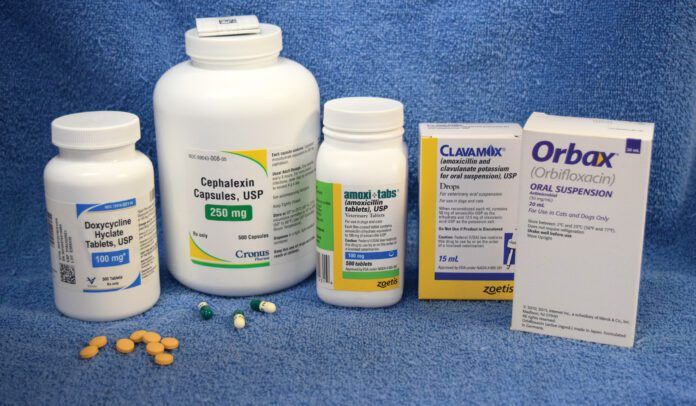
Antibiotics are the best weapon in our medical arsenal for fighting bacterial infections in dogs. Prescribed and given appropriately, antibiotics give our dogs the best chance at recovery from an infection. It is important to note that antibiotics are effective only at treating bacterial infections, not canine viral, yeast, or fungal infections.
Some antibiotics are better suited for certain types of infections than others. Your veterinarian will select an antibiotic based on the type of infection your dog has and where that infection is located. The results of a bacterial culture and sensitivity test, when available, can also help direct the antibiotic selection.
Other considerations for antibiotic selection include which formulation is easiest to give your dog (liquid versus tablet), how much your dog weighs, how often the antibiotic needs to be given, what medications your dog is currently being given, and any reactions your dog has had to medications in the past.
You must give antibiotics exactly as prescribed by your veterinarian; there are serious consequences for antibiotic misuse for dogs. Always complete the full course of treatment, even if your dog seems to be feeling better. Contact your veterinarian if your dog experiences one or more side effects from the antibiotic. Your veterinarian may prescribe something to help alleviate the side effect or may prescribe a different antibiotic.
The following is an information guide to the most common antibiotics that are used in dogs.






I wish you had a search engine to search for key words of interest. Why isn’t their a search bar on the website to aid people to find what they are looking for?